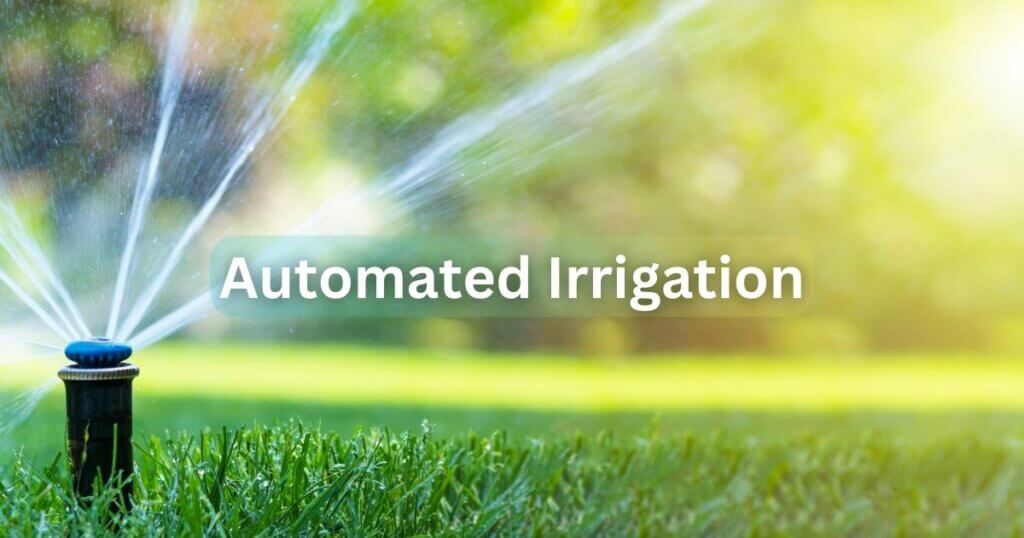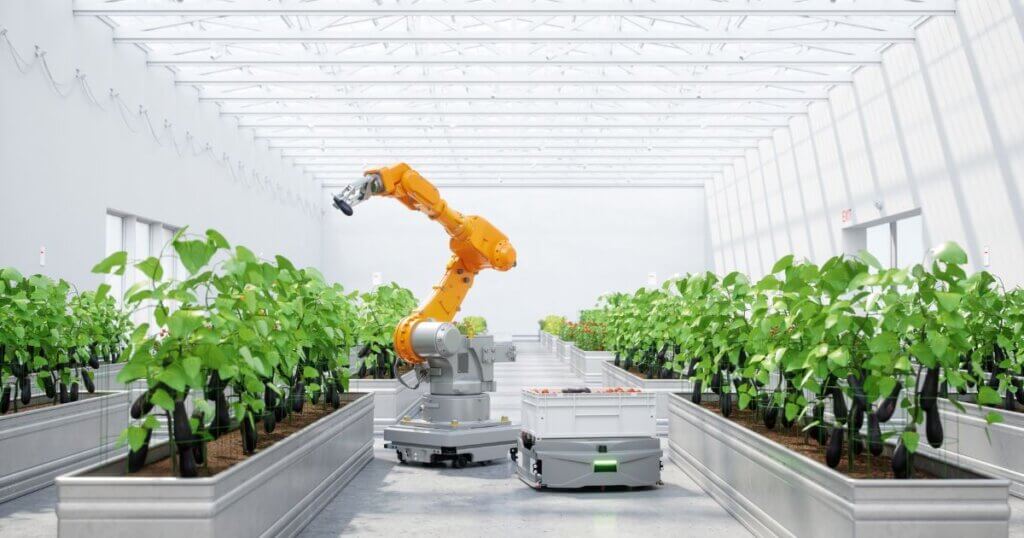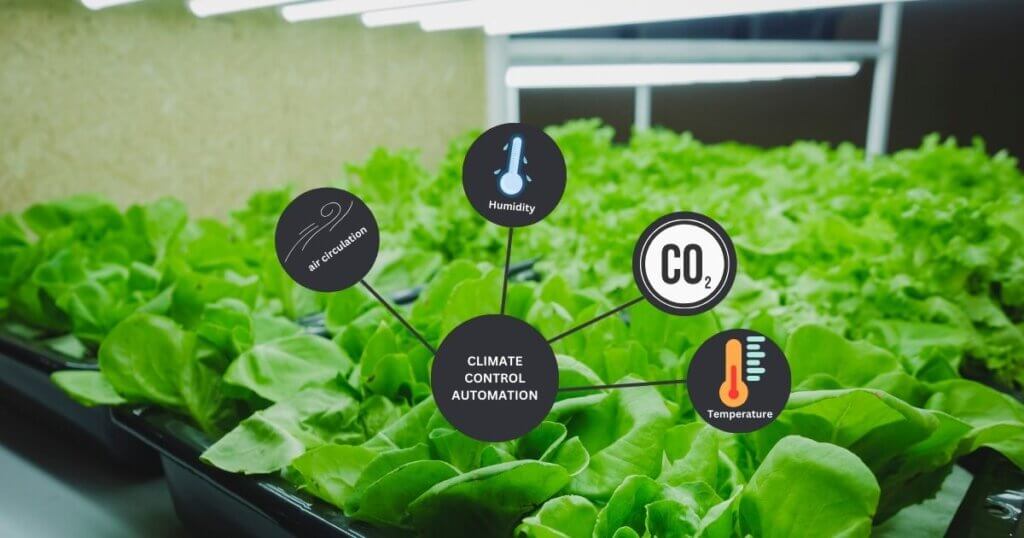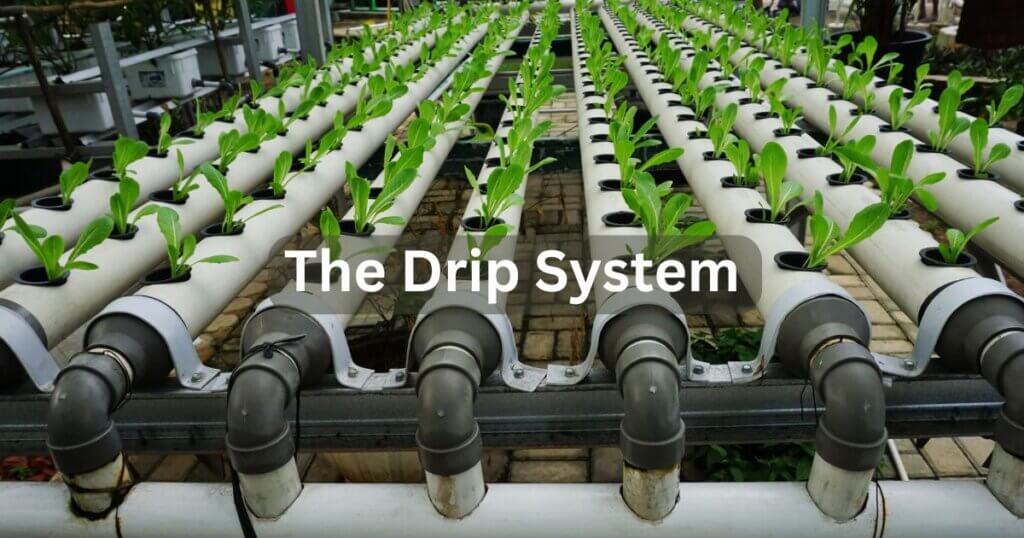Master the Art of pH and EC Control in Hydroponics
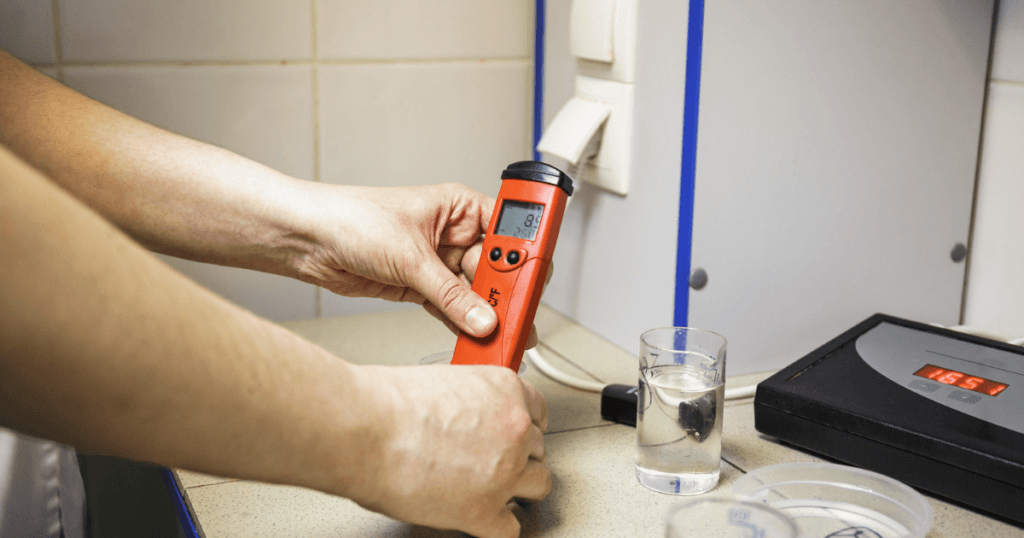
Some of the links in this post are affiliate links. As an Amazon Associate, we earn a referral fee from qualifying purchases—at no extra cost to you.
Hydroponics is a revolutionary method of cultivating plants without soil, using nutrient-rich water instead. In this advanced system, the control of pH (potential hydrogen) and EC (electrical conductivity) levels play a crucial role in ensuring plants’ health, growth, and productivity. pH and EC control in hydroponics is an art that requires a deep understanding of these factors and their impact on plants. This comprehensive guide will delve into the intricacies of pH and EC control, exploring why they are vital for plant health and providing practical tips on maintaining the ideal levels for optimal growth and yield.
In the world of hydroponics, pH and EC control are paramount for achieving optimal plant growth and productivity. These factors directly influence nutrient availability, absorption, and overall plant health. Hydroponic growers can fine-tune their systems to create the ideal plant-growing environment by understanding the principles behind pH and EC control.
Table of Contents
Understanding pH and EC in Hydroponics
pH represents a solution’s acidity or alkalinity, indicating the hydrogen ions’ concentration. It is measured on a scale of 0 to 14, with 7 being neutral, below 7 acidic, and above 7 alkaline. Maintaining the correct pH range in hydroponics is crucial as it affects nutrient availability and influences plant growth and metabolism.
EC, on the other hand, refers to the electrical conductivity of a solution, which indicates its ability to conduct electricity. EC is primarily influenced by dissolved minerals or salt concentration in the hydroponic solution. Monitoring and adjusting EC levels allow growers to provide plants with the optimal concentration of nutrients they require for healthy growth.
The Importance of pH Control
Proper pH control is essential in hydroponics because it directly affects nutrient availability to plants. Each nutrient has a specific pH range in which plants most readily absorb it. Certain nutrients become less available when the pH deviates from the optimal range, leading to deficiencies or toxicities that can hinder plant growth.
Furthermore, pH influences the availability of micronutrients, which are essential for various physiological processes in plants. For example, iron, a micronutrient critical for chlorophyll production, is most readily available to plants at a slightly acidic pH. If the pH rises, iron becomes less available, resulting in chlorosis and reduced photosynthesis.
Factors Affecting pH Levels in Hydroponics
Several factors can influence the pH levels in hydroponic systems. The main contributors include the alkalinity of the water source, nutrient solution composition, plant uptake, and the presence of pH buffering compounds. Understanding these factors allows growers to identify potential pH issues and take corrective measures.
Water alkalinity, which represents the water’s natural pH buffering capacity, plays a significant role in hydroponics. High alkalinity levels can lead to a rise in pH over time, while low alkalinity can cause pH fluctuations. Growing growers can maintain stable pH levels by testing water alkalinity and adjusting it if necessary.
Nutrient solution composition also affects pH. Different fertilizers and additives have varying effects on pH, raising or lowering it. For example, ammonium-based fertilizers lower pH, while carbonates and bicarbonates increase it. Growers can manage pH levels effectively by carefully selecting and balancing nutrient solutions.
Measuring pH in Hydroponic Systems
Accurate pH measurement is crucial for maintaining optimal pH levels in hydroponics. Growers can use pH meters or test kits specifically designed for hydroponic applications. pH meters provide precise readings, while test kits offer a more affordable alternative for occasional measurements.
To measure pH, growers should collect a sample of the nutrient solution, ensuring it is mixed thoroughly. The pH meter or test kit is calibrated or prepared according to the manufacturer’s instructions. The probe or indicator is inserted into the solution, and the pH reading is recorded.
When discussing accurate pH measurement, it’s ideal to recommend a trusted digital pH meter. The Bluelab pH Pen is widely used in hydroponics for its accuracy and ease of use. This tool helps growers keep pH within optimal levels, supporting nutrient absorption.
Adjusting pH Levels in Hydroponics
When pH levels deviate from the ideal range, adjustments must be made to restore balance. Depending on the direction of the deviation, growers can use pH-up or pH-down solutions to raise or lower pH, respectively. These solutions are formulated to adjust pH without significantly affecting nutrient concentrations.
It is crucial to adjust pH gradually, allowing time for the solution to stabilize between adjustments. After making changes, pH should be retested to ensure it falls within the target range. By closely monitoring and adjusting pH, growers can optimize nutrient availability and support healthy plant growth.
This section explains how growers can raise or lower pH. The General Hydroponics pH Control Kit includes both pH Up and pH Down solutions, essential for maintaining the right pH balance. It’s reliable and made specifically for hydroponics.
The Significance of EC Control

Electrical conductivity (EC) control is as critical as pH control in hydroponics. EC levels provide valuable information about the nutrient concentration in the hydroponic solution. By maintaining the correct EC range, growers can ensure that plants receive the necessary nutrients without risking nutrient imbalances or deficiencies.
Determining the Right EC Levels for Hydroponics
The optimal EC levels for hydroponic crops vary depending on the plant species, growth stage, and environmental conditions. Researching the specific requirements of the cultivated plants and adjusting EC accordingly is essential. Guidelines and recommendations provided by reputable sources can serve as valuable references.
Monitoring EC Levels in Hydroponic Solutions
To monitor EC levels accurately, growers can use EC meters or pens designed for hydroponic applications. These devices measure the electrical conductivity of the nutrient solution and provide a numerical value corresponding to the concentration of dissolved salts.
Regular monitoring of EC levels allows growers to detect changes and take appropriate action. By measuring EC at different stages of plant growth and adjusting nutrient concentrations as needed, growers can fine-tune the growing conditions to optimize plant health and productivity.
Accurate EC measurement is vital, and this section directly covers that. The Hanna Instruments EC Meter is a reliable choice for home and professional growers to monitor nutrient strength and avoid over- or underfeeding plants.
Managing EC Levels in Hydroponic Systems
Maintaining the correct EC levels involves adjusting the nutrient concentration in the hydroponic solution. This can be achieved by adding or reducing the amount of nutrient solution provided to plants or by adjusting the strength of the nutrient solution itself.
Increasing EC levels can be done by adding a more concentrated nutrient solution or increasing the frequency of nutrient application. Decreasing EC levels, on the other hand, involves diluting the nutrient solution with water or adjusting the strength of the nutrient solution downward.
pH and EC Interactions
pH and EC are interrelated factors that influence each other in hydroponics. Changes in pH can affect nutrient availability and solubility, consequently impacting EC levels. Similarly, alterations in EC can influence pH levels due to the presence of different salts and their corresponding acid-base reactions.
To maintain optimal growing conditions, growers must consider the dynamic relationship between pH and EC. By balancing and adjusting these factors, growers can create an environment where nutrients are available to plants in the right proportions, supporting their growth and development.
Balancing pH and EC in Hydroponics
Achieving the perfect balance between pH and EC requires careful observation and adjustments. Monitoring both factors regularly and making necessary modifications to maintain the desired levels is crucial. This ongoing process ensures that plants receive the optimal nutrient availability for vigorous growth and high yields.
Growers should strive to establish a consistent pH range that aligns with the specific requirements of their crops. Nutrient uptake and utilization can be maximized by providing plants with a stable pH environment, leading to healthier plants and improved productivity.
Similarly, maintaining the appropriate EC levels is vital for preventing nutrient imbalances. Adjusting EC allows growers to fine-tune the nutrient concentration, ensuring that plants receive an adequate supply without overloading them. This balance promotes optimal growth and helps prevent nutrient deficiencies or toxicities.
Nutrient Availability and pH
pH levels directly influence nutrient availability in hydroponic systems. Each nutrient has an optimal pH range at which it is most readily available to plants. Deviations from this range can limit nutrient uptake and lead to deficiencies or toxicities, negatively impacting plant growth.
For instance, phosphorus uptake is favoured at lower pH levels. At the same time, calcium and magnesium absorption is enhanced in more alkaline conditions. By understanding the pH preferences of different nutrients, growers can optimize their availability by adjusting the pH accordingly.
Additionally, pH levels affect the solubility of certain nutrients. Some elements become less soluble as pH increases or decreases, which can result in nutrient precipitation or lockout. This phenomenon limits nutrient availability to plants, impeding their growth and development.
pH and Nutrient Uptake in Hydroponics
The pH of the growing medium directly affects nutrient uptake by plant roots. When pH levels are outside the optimal range, the ability of roots to absorb essential nutrients is compromised. This can lead to stunted growth, nutrient deficiencies, and an overall decline in plant health.
Maintaining the correct pH range allows for efficient nutrient uptake and utilization. As roots absorb water and nutrients from the hydroponic solution, the pH of the root zone influences the availability of these essential elements. By ensuring an optimal pH environment, growers can support robust root development and maximize nutrient absorption.
pH and Plant Health
pH levels play a crucial role in plant health and overall vitality. PH imbalance can affect physiological processes, including nutrient uptake, enzyme activity, and hormone regulation. Consequently, plants may exhibit symptoms such as leaf discolouration, stunted growth, or reduced fruiting.
In addition to nutrient availability, pH influences the microbial activity in the rhizosphere—the region around the plant roots. Beneficial microorganisms that aid nutrient cycling and disease suppression thrive in specific pH ranges. By maintaining optimal pH levels, growers can foster a healthy and diverse soil microbiome, further supporting plant growth.
Troubleshooting pH and EC Issues in Hydroponics
Hydroponic systems may encounter pH and EC issues despite careful monitoring and adjustments. Growers need to be able to troubleshoot and address these problems effectively to maintain optimal conditions for plant growth.
Common pH problems include pH drift, sudden shifts, and imbalances. pH drift occurs when pH slowly increases or decreases over time due to factors such as alkalinity levels, nutrient imbalances, or biological activity. Equipment malfunctions, changes in the nutrient solution, or contamination can cause sudden shifts in pH. Imbalances in pH may result from incorrect adjustments or improper nutrient management.
Similarly, EC issues can arise, such as nutrient deficiencies or toxicities. Imbalances in nutrient concentrations can occur due to inaccurate measurements, inadequate nutrient mixing, or poor water quality. By carefully monitoring and adjusting nutrient concentrations, growers can rectify EC problems and ensure that plants receive the appropriate nutrient levels.
This dual-function device helps monitor both pH and EC accurately. The Apera PC60-Z connects via Bluetooth to your phone and gives in-depth readings and logs, which is ideal when troubleshooting or logging data trends in hydroponics.
Conclusion
Mastering the art of pH and EC control in hydroponics is essential for achieving optimal plant health and maximizing yields. By understanding the importance of pH and EC, growers can fine-tune their hydroponic systems to provide the ideal growing conditions for their plants. Regular monitoring, careful adjustments, and troubleshooting pH and EC issues contribute to maintaining a balanced and productive hydroponic setup.
Growers optimize nutrient availability, absorption, and utilization by maintaining the appropriate pH levels. This, in turn, promotes robust root development, healthy plant growth, and high-quality yields. Similarly, controlling EC levels ensures that plants receive the right nutrient concentrations, preventing imbalances and supporting optimal growth.
By becoming proficient in pH and EC control, hydroponic growers can unlock the full potential of their crops, achieving exceptional results in plant health, productivity, and overall success.
FAQs – pH and EC Control in Hydroponics
1. Can pH and EC levels be measured at the same time?
While pH and EC levels provide different insights into the growing environment, they can be measured simultaneously using multi-functional meters. Some advanced meters come equipped with both pH and EC sensors, allowing for more efficient monitoring of hydroponic systems.
2. How often should pH and EC levels be checked in a hydroponic system?
It’s advisable to check pH and EC levels at least once a day, particularly during critical plant growth stages. More frequent checks may be necessary if the system is experiencing rapid changes, such as during the transition between growth phases or when adjusting nutrient solutions.
3.What happens if pH is too high or too low in hydroponics?
If the pH is too high (alkaline), essential nutrients like iron, phosphorus, and manganese become less available, leading to deficiencies and poor plant growth. If the pH is too low (acidic), the availability of nutrients like calcium and magnesium can be limited, causing similar issues. Both conditions can lead to nutrient lockout and poor plant health.
4. What is the of temperature on pH and EC in hydroponic systems?
Temperature fluctuations can affect both pH and EC readings. As temperatures rise, the solubility of certain nutrients changes, which can alter pH levels. Additionally, warmer temperatures increase the electrical conductivity of the nutrient solution, potentially leading to higher EC readings. Managing temperature alongside pH and EC is crucial for maintaining an optimal hydroponic environment.
5. Can pH and EC imbalances cause long-term damage to plants in hydroponic systems?
Yes, prolonged pH and EC imbalances can lead to long-term damage to plants. Over time, nutrient deficiencies or toxicities can accumulate, hindering root development, slowing growth, and reducing overall plant vitality. Persistent imbalances may also stress plants, making them more vulnerable to disease or pest issues.
Useful Resources on Ph and EC Control in Hydroponics
- Hydroponics – This Wikipedia article offers a comprehensive overview of hydroponic systems, including the importance of nutrient solution management and the tools used to monitor pH and EC levels. Link
- Deep Water Culture – This Wikipedia page delves into the Deep Water Culture hydroponic method, discussing plant growth requirements and the significance of monitoring pH and EC levels in the nutrient solution. Link
- Hydroponic Dosers – This Wikipedia entry explains the role of hydroponic dosers in automating the adjustment of pH and nutrient concentrations, ensuring optimal plant growth by maintaining appropriate TDS and pH levels. Link
- Hydroponic Lettuce Handbook – This Cornell publication provides guidelines on managing hydroponic systems, emphasizing the importance of pH and EC control for successful lettuce cultivation. Link
- Controlled Environment Agriculture Center – This resource from the University of Arizona offers insights into nutrient management in hydroponics, highlighting the role of pH and EC monitoring in plant health and productivity. Link




